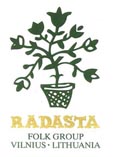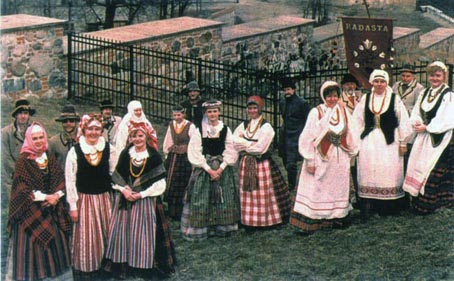‘RADASTA’ is an amateur folklore group with people of different ages and professions taking part in it – engineers, economists, teachers, etc. Apart from songs, dances and games it has always been deeply interested in the origin of folk traditions, peculiarities of dialects. All members of the group reside in Vilnius at present, but many of them descended from different regions of Lithuania. These deference are noticeable on scenic costumes of participants.
The word ‘Radasta’ means a perfectly smelling wild rose,
the flower, that is widely spread in Lithuania.
‘Radasta’ gave its first performance in 1981. At present it
can boast a wide repertoire collected from both folklore archives and
country peoplem whom they meet during their trips to various districts
of Lithuania. The first folklore expedition to the southern part of the
country was in 1984, and we communicate with the people from this place
up to now. Afterwards many other times expeditions to different regions
of Lithuania were arranged. The members of the group study history of
the country, maintain and popularise ethnic culture.

